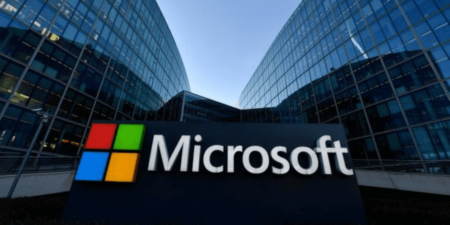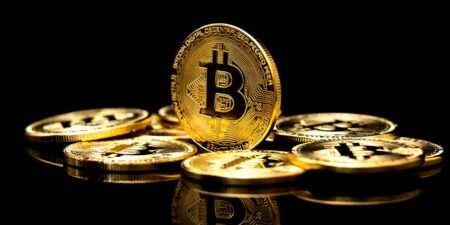Birkenstock, the maker of cork-soled sandals, became the latest company this year to stumble in its initial public offering.
The stock closed down 11% from its IPO price on Wednesday, its first day of trading. Other big-name listings of late have also had disappointing early performances. Chip maker Arm, the biggest IPO of the year, is now trading below its September debut. It’s the same story for
Instacart
parent Maplebear.
The string of IPOs that are failing to live up their opening price is looking like a trend.
Here’s how it usually works. A company selling shares wants to get as much money as it can from listing so it hires a lot of expensive advisors to get advice on how much that might be. But then, to reward early investors, it usually prices its IPO a little below its expected market value to allow the shares to get a bump once they actually start trading. Leaving money on the table is good manners.
So what’s going on now? It’s possible that companies have just been a bit greedy, but that seems unlikely. That would be a poor long-term strategy to win over investors.
It’s also possible that advisors don’t have a good understanding of how these companies should be valued. Or, put another way—they’ve misjudged current market conditions.
That seems more likely. The IPO market has been pretty dry this year, for good reason. Higher Federal Reserve interest rates are nipping risk appetite in the bud. The shift in market expectations for higher-for-longer rates since September only dampens demand more.
The result is that companies that have recently come to the market for cash now have an even bigger burden than usual in proving their value.
—Brian Swint
*** Join Barron’s deputy editor Alex Eule and associate editor for technology Eric J. Savitz today at noon when they discuss the outlook for tech companies and individual stocks. Sign up here.
***
Exxon’s Pioneer Deal Shows Shift in Power to Big Oil
Exxon Mobil’s
deal to buy shale driller
Pioneer Natural Resources
for $64.5 billion will more than double its U.S. oil production in the Permian Basin region, reversing a recent production decline. The deal also shows how Big Oil holds the advantage in the next era of drilling.
- Pioneer’s acreage in the eastern part of the Permian has some of the U.S.’s largest untapped fields. After the deal closes, Exxon’s Permian production would reach 1.3 million barrels a day, and could climb to two million barrels a day by 2027.
- Large oil producers have significant capital and technological advantages over the smaller firms that beat them into shale drilling more than a decade ago. Companies such as Exxon that have money and acreage can drill laterally in shale for up to four miles, which many smaller firms aren’t able to do.
- The Permian Basin, a top-producing oil field straddling the border of Texas and New Mexico, is a hotbed of deal activity. It saw more than $26 billion in mergers this year before the Exxon announcement, more than double the value of deals there in 2022, Reuters reported, citing Rystad Energy data.
-
The Exxon deal eclipses
Occidental Petroleum’s
$38 billion purchase of Anadarko in 2019. Rival
Chevron
could respond with its own transaction, with potential targets including
Coterra Energy
or
Devon Energy,
said Andrew Dittmar, a director at consultancy Enverus.
What’s Next: By 2027, Exxon plans to produce five million barrels a day globally, about 5% of the total global oil supply. Exxon CEO Darren Woods said the company has come up with new technologies and techniques to increase productivity in shale.
—Avi Salzman, Brian Swint, and Janet H. Cho
***
House GOP’s Speaker Nominee Still Has to Fight for Gavel
House Republicans picked House Majority Leader Steve Scalise as their speaker nominee, but adjourned without proceeding to a floor vote, because some members wanted Rep. Jim Jordan or former Speaker Kevin McCarthy, exposing the deep divisions in the GOP that remain.
- McCarthy, who was ousted as speaker last week, took himself out of contention for a return to the job. GOP members voted behind closed doors, narrowly backing Scalise 113-99 over Jordan, who was endorsed by former President Donald Trump.
- Scalise needs 217 votes to win the gavel, and Democrats are expected to support House Minority Leader Hakeem Jeffries. House Republicans blocked a proposal to raise the threshold of votes needed, but many want to avoid the 15 ballots it took to elect McCarthy as speaker in January.
- Several Jordan supporters said Wednesday they wouldn’t back Scalise, or have remained noncommittal in public. That could complicate Scalise’s ability to win the gavel unless a few of those votes can be switched. He can only afford to lose four GOP votes, if all members vote.
- Rep. Carlos Gimenez told reporters on Wednesday he still plans to vote for McCarthy when the matter comes to the floor despite the former speaker bowing out, The Hill reported. Scalise told reporters his first resolution as speaker would be to show support for Israel.
What’s Next: Among the tasks awaiting the new speaker are approving more Israel aid, averting a federal government shutdown when the temporary funding extension expires on Nov. 17, and setting other budget and legislative priorities. Other leadership positions are on hold until a speaker is sworn in.
—Janet H. Cho
***
Biden Administration Expanding Crackdown on ‘Junk Fees’
The Federal Trade Commission proposed expanded rules to ban the hidden “junk fees” such as hotel resort fees and ticket service charges that often surprise consumers. The White House has pushed this effort, citing a $2 billion drop in bounced-check fees by banks since it started cracking down.
- President Joe Biden said the fees, often added at the end of a purchase when a consumer was expecting another price, amount to tens of billions of dollars a year. They include extra fees colleges charge students aside from tuition and fees restaurants charge diners for paying with a credit card.
-
The FTC’s 161-page rule-making proposal includes 164 references to hotels, 103 mentions of restaurants, 55 references to
Live Nation’s
Ticketmaster, 40 mentions of
Airbnb,
eight mentions of college tuition, and five mentions of airlines. - An earlier version of the proposal received more than 12,000 comments, mostly from consumers favoring more price transparency, requirements that advertised prices include mandatory fees, and rules to prohibit companies from misrepresenting the purpose and amount of fees.
- The Consumer Financial Protection Bureau issued guidance to prohibit banks and credit unions from charging customers excessive fees for basic information such as their account balances or bank statements. Biden said banks have refunded $140 million in excessive fees.
What’s Next: If enacted as written, the FTC would have the power to impose financial penalties on companies that don’t disclose their full upfront prices and get refunds for customers. The public has 60 days to comment.
—Janet H. Cho
***
Ford Workers Walk out of Kentucky Plant—Strike Deepens
The United Auto Workers strike against the Detroit Three auto makers deepened Wednesday. Union members walked out at Ford’s Kentucky Truck Plant in a move designed to inflict serious financial pain on the auto maker.
- Kentucky is Ford’s largest plant in the world with nearly 9,000 workers. Overall, the facility generates about $25 billion in sales annually. Ford is expected to generate $173 billion in sales in 2023, according to FactSet.
- It’s where the F-series super duty is built—an important profit generator for Ford’s commercial business, Ford Pro. The Lincoln Navigator and Ford Expedition are built there, too.
- Now about 17,000 Ford workers are on strike, bringing the total at all three auto makers to about 33,000. Total UAW employment at the Detroit Three is about 145,000 workers.
What’s Next: Ford says it has the best economic offer of the three auto makers on the table. It was unwilling to make a new offer Wednesday and the company said UAW President Shawn Fain told it: “Well, you’ve just lost Kentucky.” Moving forward, it needs more of the positive momentum seen at the end of last week.
—Al Root and Rupert Steiner
***
Goldman’s Latest Consumer Business Sale to Hit Earnings
Goldman Sachs
is trying to retrench after its foray into retail banking, but the sale of its fintech lending unit GreenSky is going to eat into third-quarter earnings to the tune of 19 cents a share, it disclosed on Wednesday. The Wall Street bank is selling GreenSky to an investor group for an undisclosed sum.
- Goldman bought GreenSky, a platform focused on home improvement loans, two years ago for $1.7 billion. Since then it made an about-face on its consumer businesses, including the sale of a personal financial management business in August. The investors buying GreenSky are led by private-equity firm Sixth Street.
- The 19-cent charge is connected with the write-down of intangibles, Goldman said, plus a reduction in net revenue related to marks on the loan portfolio, and an increase in taxes, largely offset by a release of loan reserves.
- Analysts expect Goldman to report earnings of $5.43 a share for the third quarter, down from $8.25 a share in the same quarter last year. A malaise in deal making is weighing on Wall Street. Goldman’s advisory fees are estimated to be $699 million in the quarter, down 28%.
-
Analysts also are expecting to hear about higher loan charge-offs (writing off debt as a loss) from big banks when they start reporting on Friday. Charge-offs at
JPMorgan Chase,Citigroup,
Bank of America,
and
Wells Fargo
are estimated to more than double from last year’s third quarter, according to FactSet.
What’s Next: Goldman CEO David Solomon said the sale of GreenSky, expected to be completed early next year, is another step in narrowing the focus of the bank’s consumer business. Goldman will continue to operate GreenSky until the deal closes.
—Liz Moyer
***
Americans are concerned about a market crash or impending recession, according to a new Allianz Life Quarterly Market Perceptions Study—and 54% say they’re keeping more money than they should in cash because of these concerns.
That could be costly. Money kept in cash or in low interest-bearing accounts isn’t keeping pace with the cost of living. Here are some tips.
For more, read here.
—Alisa Wolfson
***
—Newsletter edited by Liz Moyer, Patrick O’Donnell, Rupert Steiner
Read the full article here













